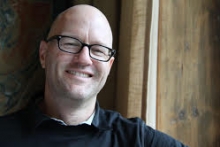"The Second Middle Passage: the Domestic Slave Trade out of Virginia, 1790-1865"
Presentation by Dr. Phillip Troutman,
Assistant Professor, The George Washington University
Middle Peninsula African-American Genealogical and Historical Society Monthly Meeting
Saturday, March 11, 2017
11:00 a.m.
Essex Public Library
117 North Church Lane (Rt. 17), Tappahannock, Virginia.
Between the Revolution and the Civil War, 1.1 million African Americans were caught up in the domestic slave trade, forced to move from the coastal and upper South to the trans-Allegheny West and the Mississippi Delta. The majority moved alone, with no family. Nearly half were from Virginia. Some were tight-packed in ships out of Richmond, Alexandria, and Norfolk. Others walked overland, 20 miles a day, across the Cumberland Gap or all the way to Natchez. A person born into slavery in Virginia in 1830 stood a 30% chance of being sold away by 1860. In Eastern Shore counties, 20%-30% of enslaved people were sold away or moved out of Virginia each decade.
This talk starts with an overview of the slave market, how its networks spidered across the state and what that meant for families and individuals in slavery. But the focus is on the stories of enslaved Virginians who left a record of their experiences—how they survived the slave market, how they worked to re-make their lives, how they tried to reconnect with lost kin. And in one case, how 19 of them mutineed and went free in Jamaica. It draws heavily on their autobiographies, their oral interviews late in life, and even some letters they managed to write or dictate during slavery.
Phillip Troutman is an Assistant Professor of Writing and of History at The George Washington University in Washington, DC. His work on US slavery includes “Grapevine in the Slave Market: African American Geopolitical Literacy and the 1841 Creole Revolt” in The Chattel Principle: Internal Slave Trades in the Americas (ed. Walter Johnson, 2004); and “Correspondences in Black and White: Sentiment in the Slave Market Revolution” in New Studies in the History of American Slavery (eds. E. Baptist and S. Camp, 2006). He is currently writing a book on radical anti-slavery visual rhetoric and is researching the history of slavery at Columbian College, now GW.
For information about this meeting or about Middle Peninsula African-American Genealogical and Historical Society (MPAAGHS) visit MPAAGH's website or call 804-758-5163.


